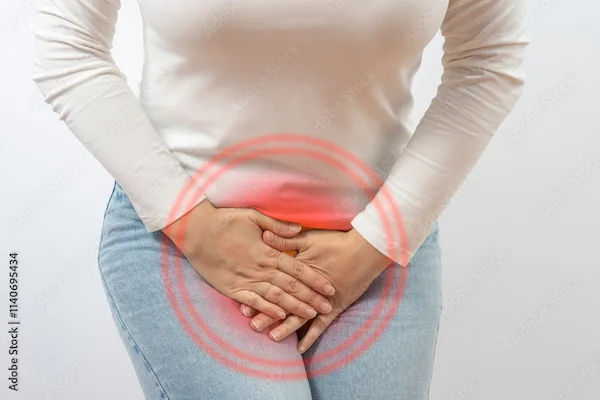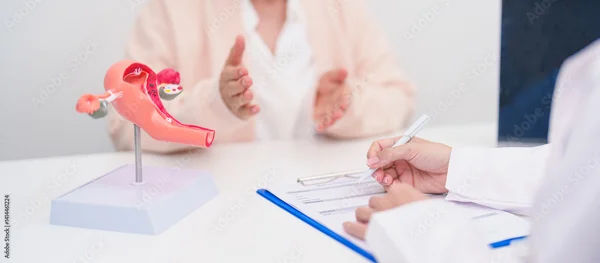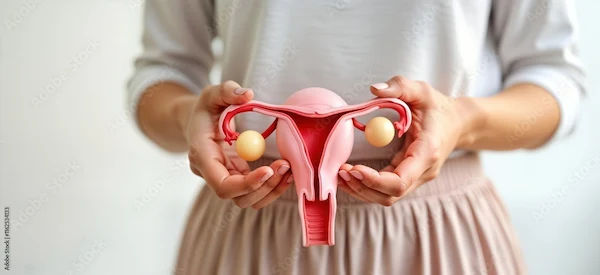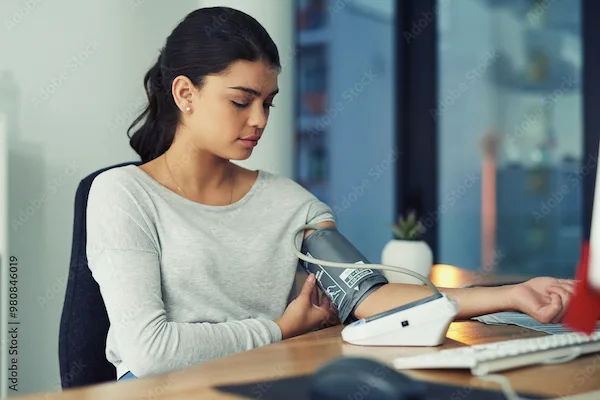Painful Bladder Syndrome After Hysterectomy
Experiencing painful bladder syndrome (PBS) after a hysterectomy? Understand the symptoms, potential causes, and effective management strategies for relief and improved quality of life.

Written by Dr.Sonia Bhatt
Last updated on 7th Jul, 2025

Introduction
If you’ve recently had a hysterectomy (surgery to remove the uterus) and are experiencing persistent bladder pain, discomfort, or frequent urination, you might be dealing with Painful Bladder Syndrome (PBS), also known as Interstitial Cystitis (IC). This condition can be frustrating and painful, but understanding it better can help you manage symptoms and seek the right treatment.
What is Painful Bladder Syndrome (PBS)?
Painful Bladder Syndrome is a chronic condition where the bladder feels sore, inflamed, or irritated without any infection. After a hysterectomy, some women develop this condition due to changes in pelvic anatomy, nerve irritation, or hormonal shifts.
Common Symptoms
The common symptoms are:
Bladder pain (worse when the bladder is full, relieved after urination)
Frequent urination (feeling the need to go often, even at night)
Urgency (sudden, strong urge to urinate)
Pelvic discomfort or pressure
Pain during intercourse
Why Does It Happen After Hysterectomy?
A hysterectomy can sometimes affect the bladder and surrounding nerves, leading to PBS. Possible reasons include:
1. Nerve Damage – Surgery may irritate or damage pelvic nerves, making the bladder overly sensitive.
2. Hormonal Changes – Removal of the uterus (and sometimes ovaries) can reduce estrogen, which helps keep bladder tissues healthy.
3. Pelvic Floor Dysfunction – Weak or tight pelvic muscles after surgery can contribute to bladder pain.
4. Scar Tissue Formation – Adhesions (internal scars) may pull on the bladder, causing discomfort.
Consult Top Nephrologist
How to Manage Painful Bladder Syndrome
While there’s no cure for PBS, several strategies can help ease symptoms:
1. Dietary Adjustments
Certain foods and drinks can irritate the bladder. Try avoiding:
Caffeine (coffee, tea, soda)
Alcohol
Spicy foods
Citrus fruits (oranges, lemons)
Artificial sweeteners
Carbonated drinks
Instead, drink plenty of water, herbal teas (like chamomile), and eat bladderfriendly foods like pears, bananas, and oats.
2. Bladder Training
If frequent urination is an issue, bladder training can help. Gradually increase the time between bathroom visits to retrain your bladder.
3. Pelvic Floor Therapy
A pelvic floor physiotherapist can teach exercises to relax or strengthen pelvic muscles, reducing pain and improving bladder control.
4. Stress Management
Stress can worsen PBS symptoms. Try relaxation techniques like:
Deep breathing exercises
Yoga or meditation
Gentle walking
5. Medications & Treatments
Your doctor may recommend:
Pain relievers (like ibuprofen)
Bladder instillations (medications placed directly into the bladder)
Hormone therapy (if low estrogen is a factor)
Nerve stimulation therapies
When to See a Doctor
If symptoms persist or worsen, consult a urologist or gynecologist. They may suggest:
Urine tests (to rule out infections)
Cystoscopy (a camera test to check the bladder)
Ultrasound or MRI (to assess pelvic health)
If you're struggling with bladder pain after a hysterectomy, don’t hesitate to seek help. Apollo 24|7 offers expert consultations and diagnostic tests to help you find relief.
Final Thoughts
Painful Bladder Syndrome after a hysterectomy can be challenging, but with the right care, many women find significant relief. Small lifestyle changes, medical treatments, and professional guidance can make a big difference.
If you're experiencing these symptoms, book a consultation today and take the first step toward better bladder health.
Consult Top Nephrologist
Consult Top Nephrologist

Dr. S Bipin Kumar
Nephrologist
13 Years • MBBS, MD General Medicine, DM, Nephrology
Rajamahendravaram
SG KIDNEY CARE, Rajamahendravaram

Dr. Govardhan Gupta
Nephrologist
15 Years • MBBS, DNB General Medicine, DrNB Nephrology
Mumbai
Oscar Superspeciality Hospital, Mumbai

Dr. Luvdeep Dogra
Nephrologist
10 Years • MBBS, MD, DM (NEPHORLOGY)
Jaipur
Dr Dogras Health Clinic, Jaipur
Dr Sanjai Maitra
Nephrologist
24 Years • MBBS, MD (Int. Med.), DM (Nephro)
Siliguri
Atrium Diagnostics, Siliguri

Dr. Anantha Rao
Nephrologist
7 Years • MBBS, DNB (General Medicine), DNB (Nephrology)
Kurnool
Aakash hospital and KIMS hospital, Kurnool
Consult Top Nephrologist

Dr. S Bipin Kumar
Nephrologist
13 Years • MBBS, MD General Medicine, DM, Nephrology
Rajamahendravaram
SG KIDNEY CARE, Rajamahendravaram

Dr. Govardhan Gupta
Nephrologist
15 Years • MBBS, DNB General Medicine, DrNB Nephrology
Mumbai
Oscar Superspeciality Hospital, Mumbai

Dr. Luvdeep Dogra
Nephrologist
10 Years • MBBS, MD, DM (NEPHORLOGY)
Jaipur
Dr Dogras Health Clinic, Jaipur
Dr Sanjai Maitra
Nephrologist
24 Years • MBBS, MD (Int. Med.), DM (Nephro)
Siliguri
Atrium Diagnostics, Siliguri

Dr. Anantha Rao
Nephrologist
7 Years • MBBS, DNB (General Medicine), DNB (Nephrology)
Kurnool
Aakash hospital and KIMS hospital, Kurnool




